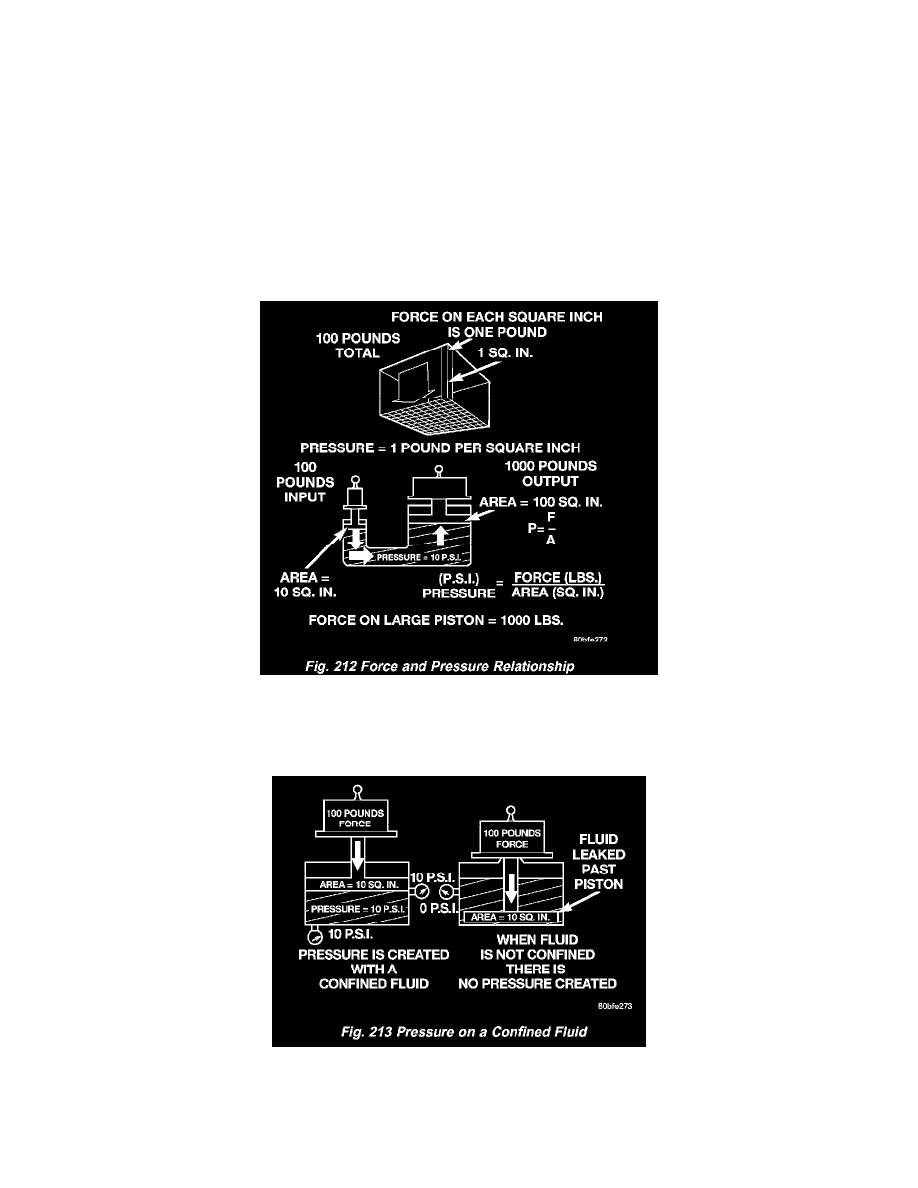RAM 1500 Truck 4WD V8-5.9L VIN Z (2002)

Clutch: Description and Operation
Pistons
46RE - Automatic Transmission
DESCRIPTION
There are several sizes and types of pistons used in an automatic transmission. Some pistons are used to apply clutches, while others are used to apply
bands. They all have in common the fact that they are round or circular in shape, located within a smooth walled cylinder, which is closed at one end and
converts fluid pressure into mechanical movement. The fluid pressure exerted on the piston is contained within the system through the use of piston rings
or seals.
OPERATION
The principal, which makes this operation possible is known as Pascal's Law. Pascal's Law can be stated as: "Pressure on a confined fluid is transmitted
equally in all directions and acts with equal force on equal areas."
PRESSURE
Pressure (Fig. 212) is nothing more than force (lbs.) divided by area (inch or ft.), or force per unit area. Given a 100 lb. block and an area of 100 square
inch on the floor, the pressure exerted by the block is: 100 lbs. 100 in or 1 pound per square inch, or PSI as it is commonly referred to.
PRESSURE ON A CONFINED FLUID
Pressure is exerted on a confined fluid (Fig. 213) by applying a force to some given area in contact with the fluid. A good example of this is a cylinder
filled with fluid and equipped with a piston that is closely fitted to the cylinder wall. If a force is applied to the piston, pressure will be developed in the
fluid. Of course, no pressure will be created if the fluid is not confined. It will simply "leak" past the piston. There must be a resistance to flow in order
to create pressure. Piston sealing is extremely important in hydraulic operation. Several kinds of seals are used to accomplish this within a transmission.
These include but are not limited to O-rings, D-rings, lip seals, sealing rings, or extremely close tolerances between the piston and the cylinder wall. The
